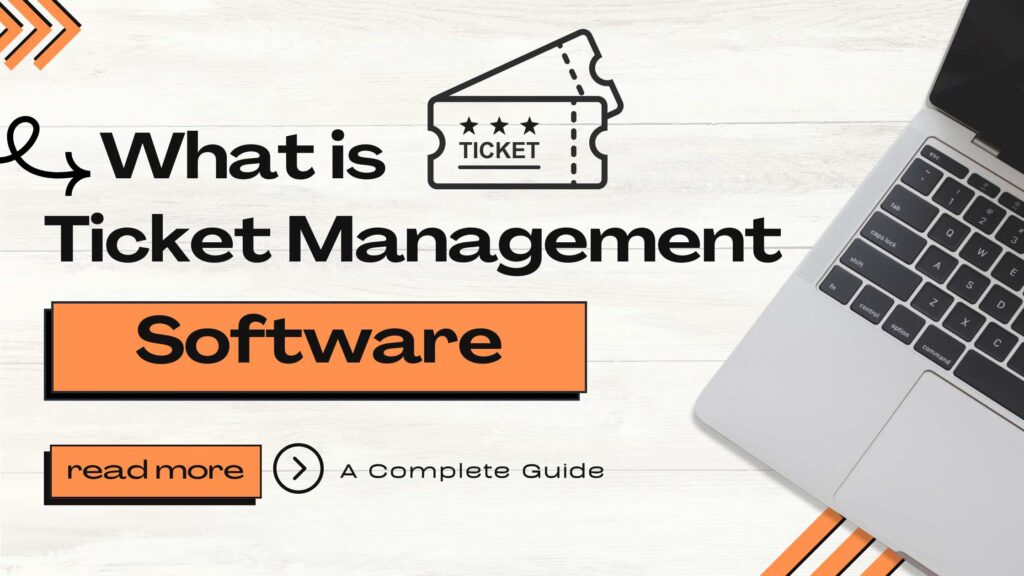Customer inquiries and issues must be managed efficiently in the fast-paced world of customer service. To streamline support requests, improve customer satisfaction, and solve problems effortlessly, a Ticket Management System is an indispensable tool for any business. It captures, tracks, and manages customer requests, playing a significant role in modern customer support.
Drive to learn what a Ticket Management System is, its core functions, and how it favours businesses of all sizes.
Understanding a Ticket Management System
A ticket management system is often integrated as part of support desk software as a central computing platform that helps any business efficiently manage customers’ queries. Every customer request or issue converted onto this system as a “ticket” can be followed up by the support team to resolve it promptly.
This also allows for tickets to emanate from sources such as email, chat, telephone calls, or social media to be routed appropriately to relevant personnel with the nature of the issue. This method ensures all customer concerns receive timely resolutions and improves their experience.
Key Features of a Ticket Management System
- Ticket Creation and Categorization: The system automatically generates tickets based on the nature of interaction with the customer, the type of problem faced, or even the targeted department. This enables support agents to prioritize and attend to highly valued tickets effectively.
- Automated Ticket Assignment: The system automatically assigns the tickets to the respective agent or department whenever automated workflows are utilised. This speeds up the rate at which tickets are resolved and minimizes the chances of them being overlooked and forgotten.
- Status Tracking and Updates: Customers and support agents can monitor the status of each ticket in real time. This information comes in various stages by which the issue passes during the resolution process, ensuring that each party is informed.
- Knowledge Base Integration: In many robust Ticket Management Systems, a knowledge base is available through which access is granted to knowledge that may be helpful in the resolution of issues. This is very useful when common queries are resolved promptly.
- Analytics and Reporting: Comprehensive reporting and analytics enable the organization to track essential metrics such as ticket resolution times, customer satisfaction, and agent performance. This will help organizations optimize their support operations.
- Multi-channel Support: A TMS integrates with multiple customer communication channels, such as email, phone, and social media. This ensures that customers can reach out in their preferred way, enhancing accessibility.
For example, SAN Softwares SanTMS is an enhanced ticket management system that can facilitate how a firm handles customer tickets. Using it, the business company streamlines the processes of handling tickets so that a client’s query is handled accordingly.
Why Businesses Need a Ticket Management System
The critical necessity in today’s competitive market is delivering quick and efficient customer service. A Ticket Management System can be an excellent customer satisfaction and retention tool. Here is why it matters for businesses:
- Efficient Issue Resolution: Automating ticket assignments and providing the agents with the right tools will help a TMS reduce the time to resolve issues, hence quicker support and happy customers.
- Improved Agent Productivity: With a central hub, agents can manage multiple tickets simultaneously, easily access appropriate resources, and follow each issue’s progress. The agents’ efforts get freed up to solve more problems than administrative management.
- Enhanced Customer Satisfaction: The customer likes transparency and speedy answers. As long as customers are updated on the status of their request, the business holder will build up trust and better experience their customers at large.
- Data-Driven Decision Making: Analytics from a TMS can identify patterns in the customer’s inquiry. Using this insight, businesses can solve repeated complaints, train agents on frequently asked queries, and modify a product or service to meet client expectations based on customer responses.
Use Cases for Ticket Management Systems in Various Industries
Ticket Management Systems help various sectors. Here are how different industries can put TMS into practice:
- E-commerce: To answer customers who have a problem with orders, returns, or payments to ensure that the customer is attended to and dealt with immediately.
- Healthcare: Answer patients’ questions and book an appointment, ensuring they receive prompt attention and minimizing waiting times.
- IT and Technology: Handle software bugs and user support, among others. This will ensure that the systems run continuously and smoothly.
- Travel and Hospitality: Tackle booking queries, cancellations, and customer requests for travel arrangements to improve their travel experience.
Choosing the Right Ticket Management System
The right TMS for your business will depend on your business’s size, industry, and specific needs. Here are some factors to consider:
- Scalability: Choose a TMS that can grow with your business and handle increasing ticket volumes as your customer base expands.
- Customizability: Look for software that allows customization to meet specific workflows and branding requirements.
- Integration Capabilities: This involves the capacity of a TMS to integrate itself into other applications such as CRM, email platforms and social networks.
- Ease of Use: This ensures agents maximize productivity while facilitating smooth ticket handling.
SanTMS, for example, is ideal for a business seeking an uncomplicated, all-inclusive ticket management platform. Capabilities like automatic ticket assignment, live tracking, and multi-channel integration guarantee sure efficiency in customer service.
Conclusion
A ticket management system is a business devoted to developing customer service enhancement. A TMS centralizes and automates customer inquiries, optimizing support operations, increasing agent productivity, and, most importantly, improving customer satisfaction.
Robust Solution: Get solid Ticket Management Software from SAN Softwares with the right features and components to help transform your customer service operation. Therefore, welcome to TMS, where you can easily ensure an efficient process for support issues, reducing response time while maintaining quality customer relationships.
Also Read: Traditional vs. Online Ticketing: Manual vs. Automated



